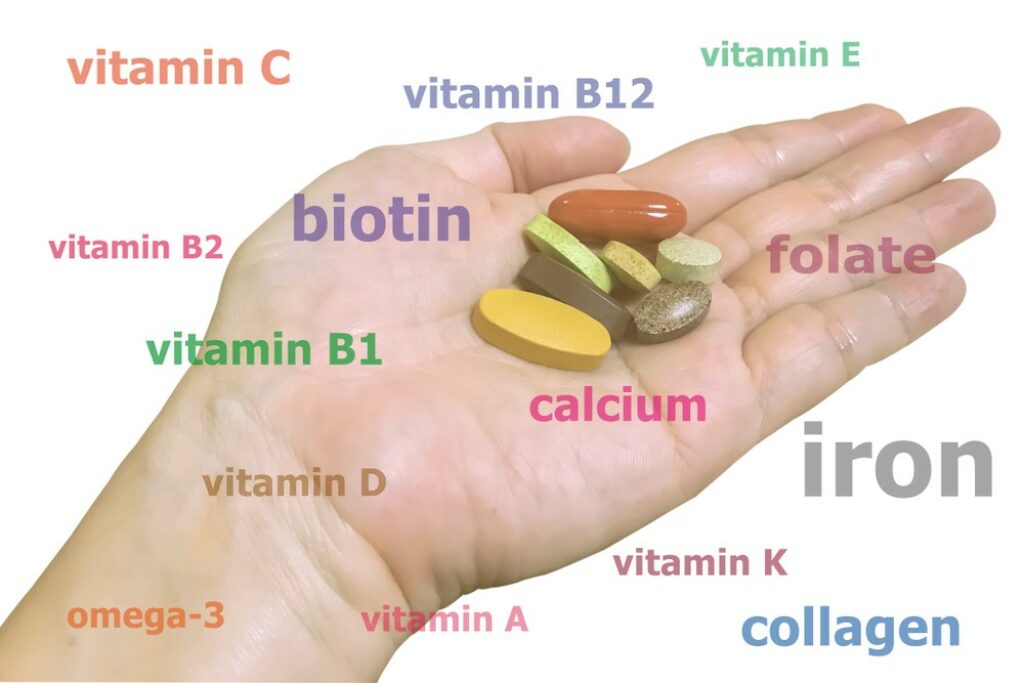
Supplements For A Stronger Immune System
Ever heard the line – “An apple a day keeps the doctor away”? While there is indeed some truth to this famous expression, merely eating fruits and veggies everyday is not enough to keep your body and immune system in peak condition. Our natural defenses need extra daily care.
Related Topics (Sponsored Ads):
It’s common knowledge that a strong, robust immune system is vitally important for your physical health. It strengthens your organs and joints, nourishes your hair, skin and fingernails, reduces inflammation, helps to heal, reduces your risk of falling ill to a wide range of viruses and serious diseases, and much more. Although a well – balanced diet, regular exercise, and adequate sleep are key factors, certain supplements can provide an extra boost. But which ones are most beneficial for maintaining good health?
Listed below are seven of the most effective supplements for a stronger immune system, along with their benefits, recommended daily dosage and other important info.

Vitamin C
Vitamin C is a powerful antioxidant that supports various immune functions. It enhances the production of white blood cells, which are crucial for fighting off infections. Additionally, vitamin C promotes the production of antibodies, which are special proteins that recognize and neutralize harmful pathogens.
The recommended daily intake of vitamin C for adults is around 75-90 mg. However, during periods of illness or stress, higher doses (up to 2,000 mg per day) may be necessary. Some potential side effects of excessive vitamin C intake include digestive issues, such as diarrhea, so be careful not to overdose.
Vitamin D
All hail the king of supplements, vitamin D. This mega super nutrient plays a crucial role in regulating the immune system. It enhances the activity of immune cells and helps modulate the body’s inflammatory response. Unfortunately, many people have insufficient levels of vitamin D, especially during winter months or in areas with limited sunlight.
The recommended daily intake of vitamin D varies depending on age and health status, but most adults should aim for 600-800 IU per day. However, it’s important to have your vitamin D levels checked by a healthcare professional before starting supplementation, as excessive intake can lead to toxicity.
Zinc
Zinc is an essential mineral that supports immune function in various ways. It helps activate immune cells, facilitates the production of antibodies, and aids in wound healing. Zinc deficiency can impair immune responses, cause wounds to be harder to heal, and increase susceptibility to infections.
The recommended daily intake of zinc for adults is around 8-11 mg for women and 11-14 mg for men. Zinc supplements are available in different forms, such as zinc gluconate or zinc citrate. It’s important to follow the recommended dosages, as excessive zinc intake can interfere with copper absorption and cause adverse effects like nausea.
Probiotics
If you’re an avid yogurt lover, then you’re in luck. Plain white yogurt is packed with ever so needed probiotics, which are beneficial bacteria that reduce bad bacteria, therefore promoting a healthy gut microbiome. This may sound strange, but it’s true – a good portion of the immune system actually resides in the gut, making probiotics an important supplement for immune support. They can also reduce the severity and duration of intestinal bugs and urinary tract infections.
Several strains of probiotics are abundantly available, with Lactobacillus and Bifidobacterium being the most common. Required doses vary depending on the specific strain and product, so it’s advisable to follow the doctor’s and manufacturer’s instructions.
Elderberry
Also known as Sambuk, Elderberry is a special dark purple fruit that has been used for centuries to enhance the immune system and help it fight off viral infections faster. So what’s the secret to this incredible berry? It contains antioxidants called anthocyanins, which have anti-inflammatory and antiviral properties. Elderberry supplements are often used to prevent and treat common colds and flu. The recommended dosage of elderberry extract varies depending on the product, so it’s best to follow the instructions on the label.
Elderberry is generally safe for short-term use, but do not take it regularly, as prolonged or excessive intake may cause digestive upset. Additionally, individuals with certain medical conditions or those taking immunosuppressive medications should first consult their healthcare provider before using elderberry supplements.
Echinacea
Echinacea is a popular herb known for its immune-boosting properties. It stimulates the production of white blood cells and enhances the activity of immune cells involved in fighting infections. Echinacea supplements are commonly used to prevent and shorten the duration of respiratory tract infections. The recommended dosage of echinacea depends on the formulation, so be sure to follow the instructions on the product label.
While echinacea is generally safe for short-term use, long-term use may diminish its effectiveness. Also, some individuals may experience allergic reactions to echinacea if they are allergic to flowers in the daisy family, so it’s advised to be careful and stop taking it if any allergic reactions occur.
Omega-3 Fatty Acids
Omega-3 fatty acids, particularly eicosapentaenoic acid (EPA) and docosahexaenoic acid (DHA), are renowned for their anti-inflammatory properties. Chronic inflammation can weaken the immune system, making an individual more susceptible to infections. Omega-3 fatty acids help modulate immune responses and support immune cell function.
Fatty fish like tuna, salmon and mackerel are excellent dietary sources. However, it’s imperative to moderate how frequently you eat fatty fish, as excessive amounts can cause mercury toxicity. Fish oil supplements are also very beneficial for individuals who find fish unpalatable. Alternatively, you can get essential Omega fatty acids from flaxseed as well.
Final Thoughts
While supplements are beneficial for supporting immune function, it’s essential to remember that they are not a substitute for a healthy, active lifestyle. It’s always best to consult with a healthcare professional before starting any new supplement regimen, especially if you have underlying health conditions or are taking medications.
Additionally, it’s important to choose high-quality supplements from reputable brands to ensure consumer safety and efficacy.




